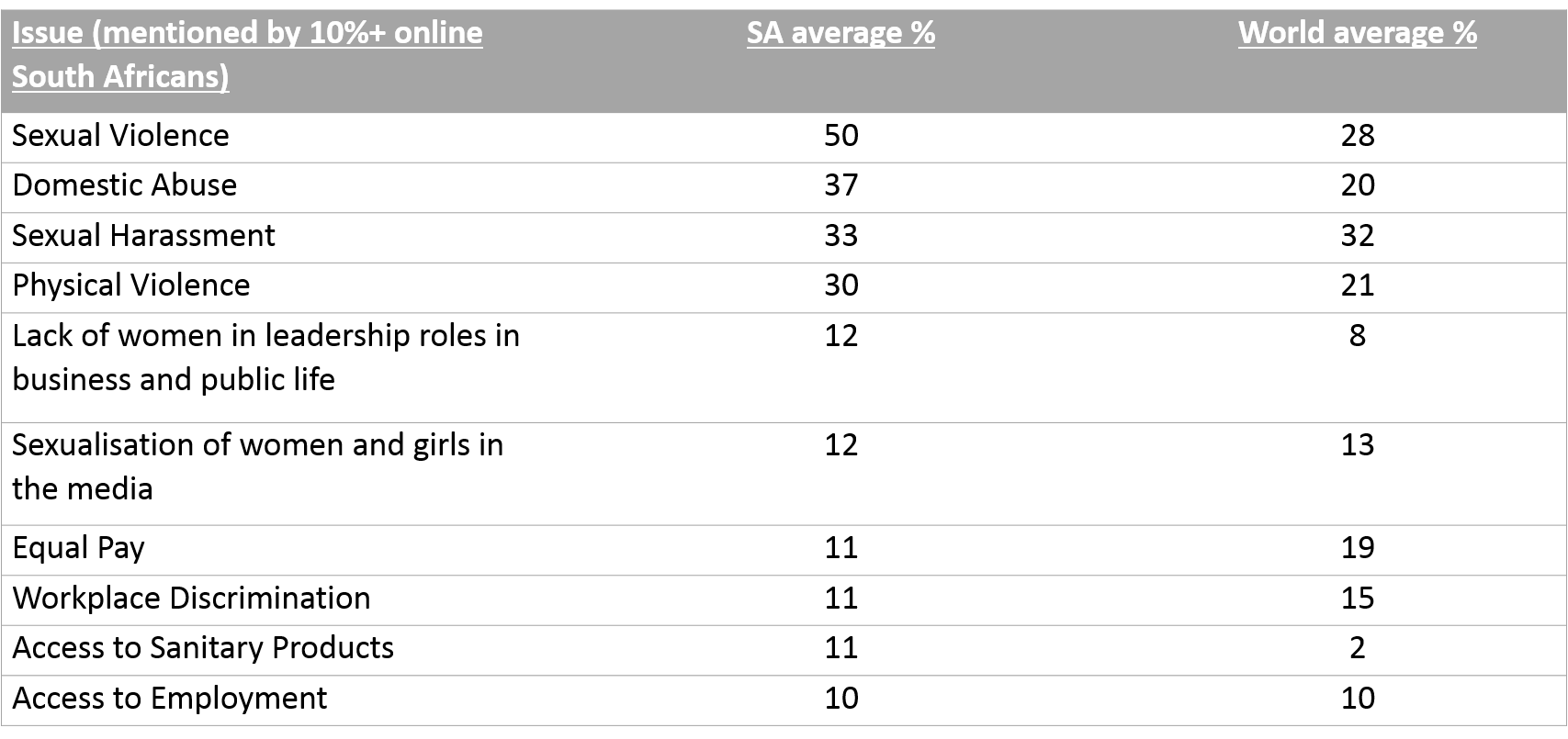International Women’s Day tomorrow: Perceptions are not reality ….and we’re not as close to equality as we think
As the only African country included in the Global Advisor study, the South African results are particularly interesting:

Looking at the worldwide figures, South Africa’s figures for mentioning “Domestic Abuse” and “Access to Sanitary Products” as important issues are the highest in the world. A rather dubious honour in both cases.
People in all 28 countries overestimate the scale of violence women experience from partners[1], and South African women say that 62 out of every 100 women experience sexual violence from a spouse or partner. The figure for South African men is 51. In fact, 13% of South African women experience such abuse. However, it is very important to add that this figure refer to reported cases. In most cases of violence against women and girls the crimes go unreported, or if they are reported they are quite often lost in the administrative nightmare of bringing cases such as these to court.
Women’s position in the workplace and high office was highlighted from a few angles. Whereas only 3% of the CEOs of the world’s 500 largest companies are women, South Africans reckoned that this figure was closer to 16%. In this we are no different from the rest of the world – who were also overestimating the real business success of women. Of the 28 countries included in the survey, currently 44% of Swedish MP’s are women, the figure in Mexico is 43% and South Africa’s figure is 40%. In the rest of the world, far fewer women are part of political decisionmaking. However, this success is not communicated and only about a quarter of South Africans are aware of this commendable fact. South Africans, like all others, hugely underestimate how long it will take for women to achieve economic equality across the world[2]. It is estimated to take 217 years, and South Africans reckoned that 20 years will bring equality.
[1] The question was: “Out of every 100 women in (COUNTRY), how many do you think say they have been a victim of physical and/or sexual violence by a current or former partner or spouse at some point in their life?”
[2] The question was: “At the current rate of progress, how long in years will it take for men and women to have economic equality across the entire world?”



